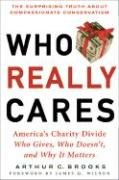About a year ago, I read the book “Think and Grow Rich” by Napoleon Hill. After I read the book, I had what I call an “Aha” moment, seeing my life purpose clearly for the first time. Like most people, I have a healthy dose of skepticism when it comes to people talking about “seeing the light”, and I don’t believe in magic pills or cure alls. I do believe that when people are ready to be open-minded about life and learning about themselves, magic things happen. For some, insight comes from reading, overcoming a tragedy, or some other monumental life event that causes them to see life differently than they had before. For me, it came from reading a book. After I read Think and Grow Rich, I felt it had opened a door to curiosity. Over time, I realized that I wanted to make a difference in the lives of others. Serving others and making a difference has become a central theme in my life. In the last year, I stayed in touch with the Napoleon Hill Foundation and Learning Center and even attended one of their open house programs last year. Since I began getting more involved in helping others, wonderful things have opened up for me. I’m happier in life than ever before and i’m making a documentary called “A Work In Progress” about how one person can make a difference in the world. Since things became clearer for me, I began seeing inspirational messages everywhere I went. You can see clips from some of those stories on the page “Film in Development”.
It seems things come full circle. I’ve stayed in touch with the Napoleon Hill Center and am honored to be speaking at this year’s Napoleon Hill World Learning Center open house on the campus of Purdue University, May 5-9th. During my discovery process, I became much better at understanding what’s important about money. Money is a means to an end, not an end in itself. I am excited to be speaking on “How Money Can Buy Happiness: Balancing Life and Wealth”.
I am honored to be included on the list of speakers that last year included Bob Proctor from “The Secret”. I look forward to sharing my passion with others and showing people how to harness passion within their financial plan. Hope to see you in Hammond.
Richard



